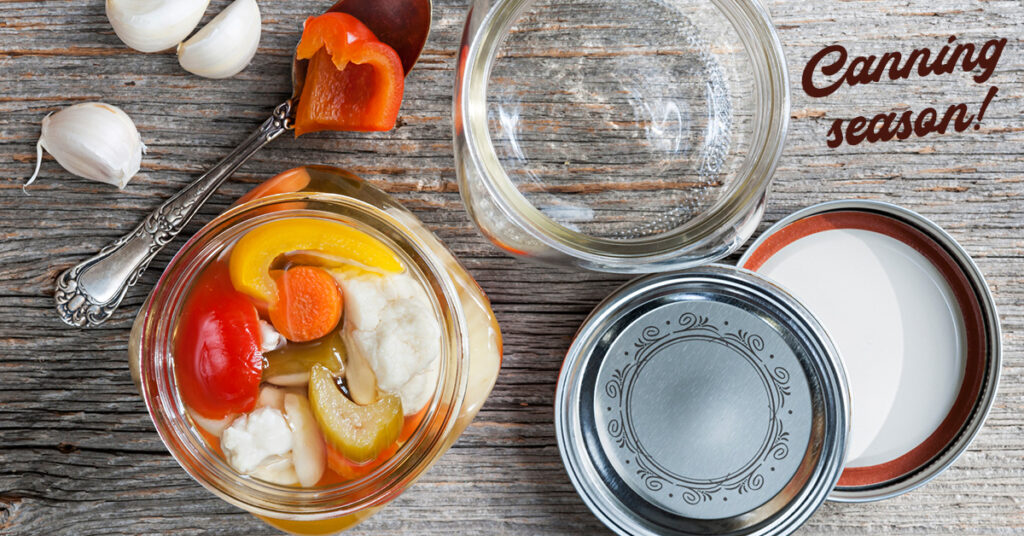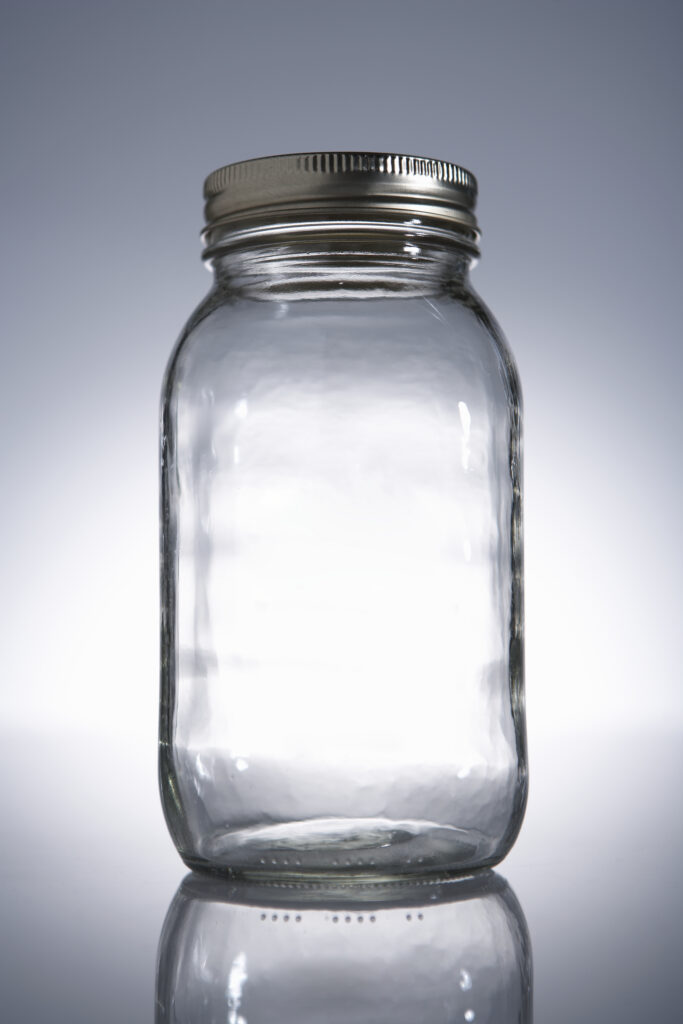
It’s Canning Season!
One of the best parts of summer is easy access to an abundance of fresh, homegrown fruits and vegetables. However, when the colder months roll around we are once again left deprived of these natural delights. Enter canning! Canning is a method of preservation, and the best way to enjoy summertime vegetables throughout the colder months.
Canning is an essential and safe, if done properly, method to food preservation. The canning process involves placing foods such as fruits, vegetables, jams, jellies, pickles, and other preserves, in jars and heating them to a temperature that eliminates micro-organisms that cause the food to spoil. During the heating process, air is driven out of the jar and as it cools a vacuum seal is formed. This seal prevents air from getting back into the jar, preventing these micro-organisms from contaminating the food and leading to successful preservation.
With fall fast approaching, we’d like to share some home canning tips to help you have as much success as possible this year. If your garden has been a success this year, you’ll probably have a good amount of vegetables to can! And if you’re canning from store-bought items, make sure to read your ingredient list closely and beforehand to see if ingredients need to be prepped before the canning process. For example, does your watermelon rind need to be soaked in brine overnight before you can begin the pickling process?
When it comes to filling, experts have said that sterilizing jars and lids is not necessary because all bacteria will be eliminated in the process. Therefore, you can reuse jars from previous years, as long as they are in good condition. You’ll just need new lids to ensure a tight seal. Jars should be washed and dried before they are filled. It’s important to soak your new lids in hot water for ten minutes to soften the rubber edge, and help the lids grip on the top of the jar when the rings are screwed on.
Once the jars have been successfully processed, let them sit, untouched for at least an hour. As the jar cools the lids will sink into the center and you may hear a “ping” sound, indicating the lids have sealed. Store your jars away from direct sunlight, in a cool, dry place. Processed foods typically are good for a year, although many items will not spoil for a longer period of time. If you see mold, discoloration, or smell something funny, discard the food immediately. If a jar’s seal has been compromised discard of the food immediately, and ultimately, when in doubt, throw it out.

What’s basically the main ingredient in canning? Mason jars! We have them: Order yours from us here.
Happy canning!
